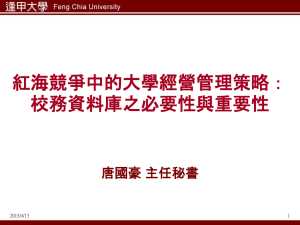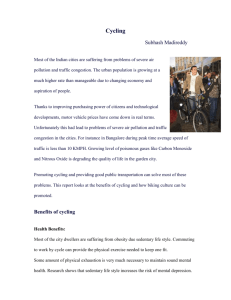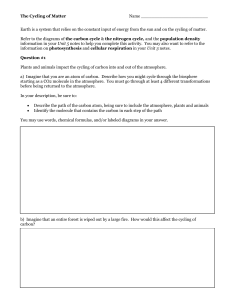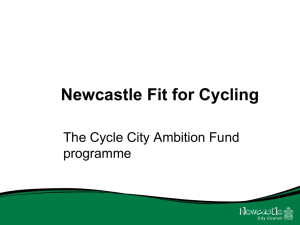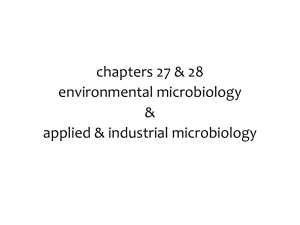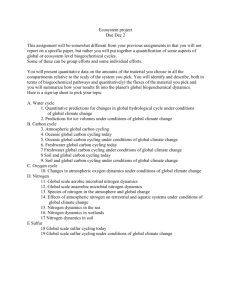CHAMP_cycling strategy_template
advertisement
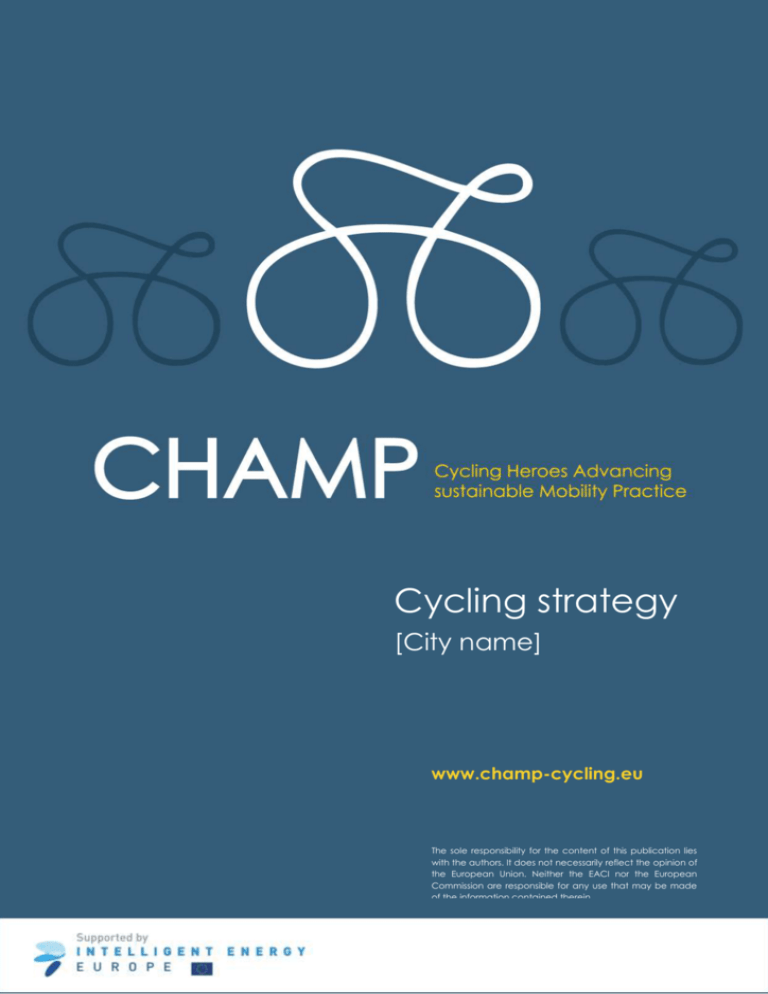
Cycling strategy [City name] www.champ-cycling.eu The sole responsibility for the content of this publication lies with the authors. It does not necessarily reflect the opinion of the European Union. Neither the EACI nor the European Commission are responsible for any use that may be made of the information contained therein Deliverable No. 3.1 Title Cycling strategy Work Package WP3: Implementation Author(s) Status (D: draft; F: final) D Date Revision History 2 Index Instructions ............................................................................................... 4 Introduction ............................................................................................. 5 Vision and targets and local context ................................................ 6 Focus areas ............................................................................................. 7 User Needs .......................................................................................... 7 Coordination/organization .............................................................. 7 Cycling Plans ...................................................................................... 7 Financing............................................................................................. 7 Evaluation ........................................................................................... 7 Infrastructure & Safety ...................................................................... 7 Availability of the bicycle ................................................................ 7 Promotion & Information .................................................................. 8 Education & Partnerships ................................................................. 8 Complementary actions .................................................................. 8 Measures .................................................................................................. 9 Monitoring and evaluation ................................................................11 PR ............................................................................................................11 3 Instructions The cycling strategy is the link between WP2 and WP3. It is based on the findings from the self analysis, the peer review and the gap analysis in WP2 and is the basis for the selection of which two measures each city will implement within WP3. This strategy is not supposed to replace an existing strategy of the city. If your city already has a strategy this document is more a reaction to the findings/recommendations from the peer review and gap analysis. The two measures that your city will implement should be based on the strategy and the list of measures. It is important to get internal agreement on the strategy, and to involve not only the mobility department but also departments from related areas such as the economy department, social department, urban planning, and other important key players/stakeholders. The politicians are of course very important and political approval of the cycling strategy during the project would be good. You can keep the cycling strategy short and do not have to write much under each heading. Red text is instructions for what to write under each heading. The red text should be removed once the strategy is completed (including this page). 4 Introduction The CHAMP project brings together 6 champion cycling cities and one climber city which want to improve their cycling policy and collect new ideas for making cycling more attractive and safer for their citizens. The focus of CHAMP is the exchange of best practice and lessons learned between leading cycling cities and with other European cities, to create safer and more attractive conditions for cycling in Europe. The purpose is also to improve the cycling strategies in the CHAMP cities. Within the CHAMP project, a self analysis and a peer review of each city has been carried out. The purpose of the peer review is to have an outside view on the cycling policy. The outcome of the peer review is a report on the strengths and weaknesses of the reviewed city. After the peer review, a gap analysis was made for each city. The gap analysis combines the findings of a self-analysis questionnaire which all cities completed themselves, and the findings of the peer review. The gap analysis focuses on 5 elements of policy planning, and 5 elements on actions to take. This strategy describes the vision and the prioritised measures of [city name], based on findings of the peer review and the gap analysis. Within the CHAMP project each city will implement two innovative measures. The selection of the measures is made on the basis of this cycling strategy. 5 Vision and targets and local context [Describe the vision, aim and targets of the cycling strategy. Describe how the strategy has been developed, who has been involved and who is responsible. Also describe the local context including the relation to existing planning documents which deal with cycling] 6 Focus areas [Summarise the findings from the gap analysis and the peer review and how the city will proceed in each area. Please write maximum half a page for each area.] User Needs Gap: Xxxxx Response: Xxxx Coordination/organization Gap: Xxxxx Response: Xxxx Cycling Plans Gap: Xxxxx Response: Xxxx Financing Gap: Xxxxx Response: Xxxx Evaluation Gap: Xxxxx Response: Xxxx Infrastructure & Safety Gap: Xxxxx Response: Xxxx Availability of the bicycle Gap: Xxxxx Response: Xxxx 7 Promotion & Information Gap: Xxxxx Response: Xxxx Education & Partnerships Gap: Xxxxx Response: Xxxx Complementary actions Gap: Xxxxx Response: Xxxx 8 Measures [List the measures planned in the 10 areas. Also indicate which gap the measure is supposed to fill and how. The two measures your city will implement within CHAMP will be selected from this list and should therefore be included. Please include the following information for each measure: Measure name Short description System impact/Objective Which gap will the measure fill and how Timeframe Cost Responsible Follow-up] [Measure name] Short description [Write a short description of the measure, including which gap the measure will fill and how] System impact/Objective [Describe the system impact and objective of the measure. Include other positive effects like health or traffic security.] Timeframe Cost Responsible Follow-up [Measure name] Short description [Write a short description of the measure, including which gap the measure will fill and how] System impact/Objective [Describe the system impact and objective of the measure. Include other positive effects like health or traffic security.] Timeframe Cost Responsible 9 Follow-up [Measure name] Short description [Write a short description of the measure, including which gap the measure will fill and how] System impact/Objective [Describe the system impact and objective of the measure. Include other positive effects like health or traffic security.] Timeframe Cost Responsible Follow-up [Measure name] Short description [Write a short description of the measure, including which gap the measure will fill and how] System impact/Objective [Describe the system impact and objective of the measure. Include other positive effects like health or traffic security.] Timeframe Cost Responsible Follow-up [Measure name] Short description [Write a short description of the measure, including which gap the measure will fill and how] System impact/Objective [Describe the system impact and objective of the measure. Include other positive effects like health or traffic security.] Timeframe 10 Cost Responsible Follow-up Please add more lines depending on the number of measures. Monitoring and evaluation [Describe how and when you will monitor and evaluate the results of the strategy.] PR [Identify the different stakeholders that need to be informed about the strategy itself – politicians, other departments, external local stakeholders, local media and draw up a plan on what, how and when to communicate with the different stakeholders (messages, channel and timing).] 11
